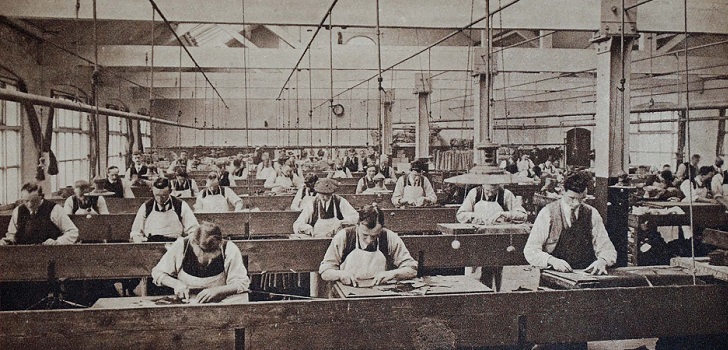Leicester, ground zero: the ultra fast-fashion hub that has shaken up the fashion industry
The British Parliament already alerted a year ago about working conditions in the city, which became the second richest in Europe thanks to its textile industry.

“It is an open secret that some garment factories in places like Leicester are not paying the minimum wage. This must stop.” The Environmental Audit Committee of the British Parliament wrote this in Feb. 2019, way before Leicester was grabbing media attention because of its factories allegedly violating worker’s rights. After The Sunday Times published an investigation reporting on the conditions at a Boohoo supplier in the city, all eyes turned to this small city, but how has Leicester turned into the factory of British ultra fast-fashion kings?
Leicester’s relationship with the textile industry dates back to the 19th century . With the industrial revolution and until the end of the 20th century, footwear and, specially, clothing became the main sectors of the city. Thanks to its expanding textile industry, Leicester became the second richest city in Europe in the 1930s. Today, many of those factories have turned into art galleries, offices, or coffee shops. Others host new factories under new names, such as Fashion Point UK or Jaswal Fashions, which produce fast and cheap clothing for the biggest fashion e-tailers.
With just over 650,000 inhabitants in its metropolitan area, Leicester is the largest city in the Eastern Midlands and a key logistics hub in the UK. The city houses the headquarters of IBM, Caterpillar, Norton, Walmart, Amazon, DHL, Next and Santander, it has the largest cargo airport in the country and two of the largest distribution parks.
This logistical capacity, combined with its history as a textile hub , is what has made Leicester a strategic hub for the so-called ultra fast-fashion. Pure players such as Asos, Boohoo or Missguided are able to replicate the most popular styles on social media in a matter of days thanks to the short lead times of the Leicester factories, which can be speeded up to just two weeks.
Leicester houses 700 factories that produce one million garments a week
According to data from the City Council, Leicester has the second largest concentration of textile and clothing producers in the country, with 700 factories and 10,000 workers. Production per week is around a million garments.
This information is collected in a report from the Environmental Audit Committee of the British Parliament, which concluded that the current fashion system is unsustainable and that it went so far as to ask to collect a penny for each garment and to implement tax reforms to reduce the environmental impact of the sector.
The report also included the statements of the president of the Textile Manufacturer Association of Leicestershire, Saeed Khliji, in which he stated: “none of the retailers are giving us an ethical price. An extra £2 or £2.50 on a garment would sort everything out. Instead they squeeze us for pennies. If they don’t sell everything, they send it back and charge us for the carriage. If we are an hour or 30 minutes late with delivery they fine us £500”.
Asos, Missguided or Boohoo are some of the pure players that produce in the city
The article in The Sunday Times stated that, in the factory analyzed, the wage was less than 3.5 pounds per hour, while the minimum wage for workers over 25 years old in the UK is 8.72 pounds. The piece also specified that the factory was operational despite the fact that the city was under lockdown by the coronavirus crisis and that it operated without additional hygiene measures or a safety distance.
Boohoo responded by saying that he was “shocked and appalled” and that an independent audit would be commissioned. Asos, Zalando and Next, which is based in Leicester, stopped distributing the group's clothes and Quiz stopped sourcing from the city.


info@themds.com
Validation policy for comments:
MDS does not perform prior verification for the publication of comments. However, to prevent anonymous comments from affecting the rights of third parties without the ability to reply, all comments require a valid email address, which won’t be visible or shared.
Enter your name and email address to be able to comment on this news: once you click on the link you will find within your verification email, your comment will be published.